Great Travel Books to Read Before Your Next Small Ship Cruise
by Heidi Sarna & Ted Scull.
Here are some of QuirkyCruise’s favorite novels and non-fiction books that relate in some way, shape or form to small-ship cruises and the places they go.
Reading a good book or two before or during your quirky cruise adds context and unfathomable depth to your voyage!
This list is a work in progress and we’d love to hear what your favorite travel books are. Drop us a line!
Fiction
State of Wonder (fiction, 2011)
by Anne Patchett
Themes: Brazil, Amazon River, scientist goes off the grid
A 42-year-old research scientist working for a pharmaceutical company in Minnesota, is sent to Brazil to locate the remains of her deceased lab mate, who was himself there to check on another “lost” scientist. The trio burrows into the jungles of the Amazon in search of a secret fertility chemical found in the rare bark of a tree that prolongs the fertility of an isolated Amazonian tribe well into their 70s.
The Woman in Cabin 10 (fiction, 2016)
by Ruth Ware
Themes: Norwegian fjords, posh yachts
This page-turning crime thriller takes place on a small luxury yacht sailing along the Norwegian coast with a group of travel writers who are being wine and dined; one of them inadvertently becomes party to a murder.
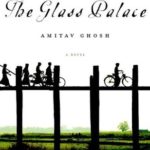
*
The Glass Palace (fiction, 2000)
by Amitav Ghosh
Themes: Colonial-era Burma & India, Irrawaddy River
Set in Burma, India, Bengal and Malaya in the late 19th- to mid-20th centuries, this epic novel provides a great historic framework for the region from the prospective of native inhabitants under the thumb of the colonials, with war, business and a love story or two worked into the narrative. A must-read if you’re thinking about a river cruise in Myanmar.
The Lifeboat (fiction, 2012)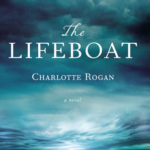
by Charlotte Rogan
Themes: Transatlantic crossings, adventure, shipwrecks
The heroine’s honeymoon cruise is a disaster and she finds herself crammed into a lifeboat drifting aimlessly at sea for weeks, her destiny turned upside down. The novel touches on many compelling themes, from the will to survive to grace, hysteria and the shackles of gender roles in the early 20th century.
Ship of Fools (fiction, 1962)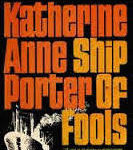
by Katharine Anne Porter
Themes: Transatlantic crossings, classic liners
The setting is a German passenger ship sailing from Mexico to Bremerhaven, Germany in the period before World War II with an eclectic passenger list that interacts in many different ways, from exhibiting blatant prejudicial beliefs to falling into love affairs and breaking up. An excellent film of the same name came out in 1965 with a celebrity cast of characters.
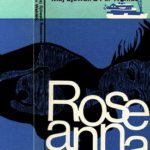 Roseanna (fiction, 1965)
Roseanna (fiction, 1965)
by Maj Sjowall and Per Wahloo (translated form Swedish to English by Lois Roth)
Themes: Sweden, Gota Canal
The historic Gota canal serves as the page-turning backdrop of this Ed McBain-esque murder mystery which, like the canal, spans from Gothenburg to Stockholm and will give your small ship cruise experience a whole new macabre dimension.
 The India Tea Series:
The India Tea Series:
The Tea Planter’s Daughter, The Tea Planter’s Bride, The Girl from the Tea Garden (fiction, 2012-2016)
By Janet MacLeod Trotter
Themes: India, Assam, colonial-era tea plantations, love and relationships
This trio of historic romances are family sagas set against the backdrop of tea plantations in early 20th-century India, when the country was still under the British Raj, but at the tail end of the Empire. The books provide great background for Brahmaputra River cruises in Assam, India. The heroines’ romantic prospects and family obligations make for page-turning reads; my good friend Sue P loved this trilogy.
Old Man and the Sea (fiction, 1951)
by Ernest Hemingway
Themes: Cuba, Caribbean, Fishing
The Pulitzer Prize-winning novella by the great Hemmingway about an old man and a big marlin. It’s a classic story of struggle and redemption, with undercurrents of the socioeconomics of the day.
Non-Fiction
Endurance: Shackleton’s Incredible Voyage (non-fiction, 1959)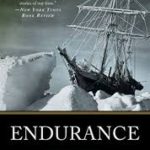
by Alfred Lansing
Themes: Antarctica, exploration, survival
There are many books written about polar explorer Sir Ernest Shackleton and this is the most well-known. Lansing’s account of Shackleton’s failed attempt to cross the Antarctic continent in 1914 aboard the three-masted barquentine Endurance and how the 28-man crew survived there for almost two years is riveting. The book is based on the diaries of the men on the expedition, all of whom miraculously survived to tell their tales, and is an excellent read before small ship cruises to Antarctica.
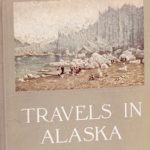 Travels in Alaska (non-fiction, 1915)
Travels in Alaska (non-fiction, 1915)
by John Muir
Themes: Alaska, wildlife, nature
The famous naturalist’s vivid observations of Alaska’s wildlife, landscape, waterways and people paint a lovely picture of a state that is still very remote and untouched a century later. This is a must-read before a cruise to Alaska; small ships take you as close to Muir’s Alaska as you can get today.
Cloud Forest (non-fiction, 1961)
By Peter Matthiessen
Themes: Amazon rainforest & river, its sheer vastness
Peter Matthiessen crisscrossed 20,000 miles of the South American wilderness, from the Amazon rain forests to Machu Picchu, high in the Andes, down to Tierra del Fuego, following in the footsteps of explorers before him. Matthiessen sums up his ode to the great inscrutable Amazon like this: “The Amazon remains as sullen and intractable as it ever was.”
 Old Glory: An American Voyage (non-fiction, 1981)
Old Glory: An American Voyage (non-fiction, 1981)
by Jonathan Raban
Themes: Mississippi River, American South
This British writer buys a small outboard boat and begins a long journey south along the Mississippi from Minneapolis to the Delta country below New Orleans. He weaves a past and present tale during his voyage that provides encounters with people along the way, the nature of the waterborne commerce hauled by rafts of barges, the boom and bust riverside towns and cities, and why they sprung up, prospered and in many cases, declined with the coming of the railroads and highways and decline of industry. Definitely read this before Mississippi River cruises.
Slow Boats to China (non-fiction, 1981)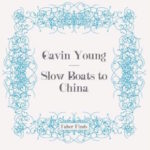
by Gavin Young
Themes: China, Southeast Asia, round-the-world voyages
As a British foreign correspondent, he weaves an account of traveling almost entirely by sea from Piraeus, the port for Athens, via the Middle East, India and Southeast Asia to Canton (Guangzhou) on the China coast not far from Hong Kong, an adventurous journey of seven months. The 23 vessels he strings together to get him there are as varied as the people he meets and include ferries, cargo and passenger ships, sailing dhows, and tugs.
Slow Boats Home (non-fiction, 1985)
by Gavin Young
Themes: China, Southeast Asia, Africa, round-the-world voyages
The sequel picks up the tale in China and continues across the Pacific, around Cape Horn and via the West African coast back to England. It is much more difficult for the author to link up a similar kaleidoscope of ships, so much of the journey is aboard a Soviet ship with mostly Commonwealth retirees. Breeze through that part and the two volumes make a fine round-the-world read.
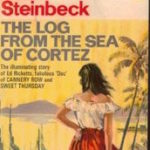 The Log from the Sea of Cortez (non-fiction, 1941)
The Log from the Sea of Cortez (non-fiction, 1941)
by John Steinbeck
Themes: Baja California, Sea of Cortez, wildlife
This famous American writer travels with a friend aboard a small seagoing vessel on a marine biology expedition in 1940. The pair leaves from Monterey, California and sails south along Mexico’s Pacific Coast and around the southern tip of Baja California into the Sea of Cortez. The log includes observations of wildlife on land and in the sea, navigation and weather, and the indigenous people they meet in the days before mass tourism arrives. It is a great read while taking a modern-day small ship expedition cruise in this same region with wonderful parallels between then and today’s discoveries.
Looking For a Ship (non-fiction, 1990)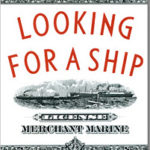
by John McPhee
Themes: Merchant marine, South America, Panama Canal
This well-regarded author weaves the story of a seaman trying to find a position on an American ship and who signs on as a second mate aboard the S.S. Stella Lykes for a 42-day voyage from the U.S. South through the Panama Canal and along the west coast of South America. McPhee, along for the ride, hears tales from the crew of other ships as well as what good, bad and ugly transpires daily on board and in ports en route. It’s a fascinating glimpse into the life of the American merchant marine as it withers away due to low cost foreign labor and flags of convenience.
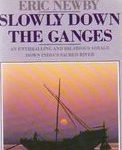 Slowly Down the Ganges (non-fiction, 1966)
Slowly Down the Ganges (non-fiction, 1966)
by Eric Newby
Themes: Ganges River, India
Travel writer Eric Newby recounts the tale of the audacious 1,200-mile journey he and his wife Wanda took down India’s sacred Ganges River, revealing the adventure, frustration, beauty and bewilderment that befell them along the way. A must-read before embarking on your own Ganges small ship river cruise.
Steaming to Bamboola: The World of a Tramp Freighter (non-fiction, 1982)
by Christopher Buckley
Themes: Transtlantic crossings, freighters
Book author, managing editor of Esquire Magazine and presidential speechwriter, Buckley was born of wealth and privilege and hopped on a rough and tumble tramp freighter (cargo ship) across the Atlantic Ocean for the sheer adventure of it. The colorful lives of the crew, extreme weather and endless days at sea provide both grim and hilarious material for this first-hand account of the hardscrabble life of seamen. A great read if you’re considering hopping on board a passenger-freighter for your next holiday.
Kon-Tiki (non-fiction, 1990)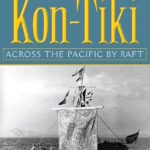
by Thor Heyerdahl
Themes: South Pacific, exploration
This fascinating memoir recounts the author’s astonishing three-month, 4,300-nautical-mile adventure across the Pacific Ocean on a balsa wood raft in 1947. Norwegian adventurer and anthropologist Heyerdahl and his crew wanted to prove that the islands of the South Pacific had been settled by an ancient race that had traveled thousands of miles by sea to get there, demonstrating that ancient peoples had made great journeys by sea in very primitive “vessels.” Kon-Tiki is a great read to prepare for small ship cruises to French Polynesia, Fiji and other islands in the South Pacific.
A Trilogy of Ocean Liner Voyages by Theodore W. Scull
Ocean Liner Odyssey (non-fiction, 1998)
by Theodore W. Scull
Themes: Transatlantic crossings, Europe & Mediterranean, classic liners
The first volume is a succession of the author’s adventures by sea that begins with early transatlantic crossings on national flag French, British, German, Italian, Dutch and Swedish ships and sailings on smaller passenger vessels within Europe and in the Mediterranean whilst traveling from A to B.
 Ocean Liner Twilight (non-fiction, 2007)
Ocean Liner Twilight (non-fiction, 2007)
by Theodore W. Scull
Themes: Around-the-world voyages, classic liners
The sequel continues with an around-the-world voyage stringing together eight large and small liners flying the French, British, Indian and Chinese flags, then continues aboard two long liner voyages to and from Australia, an overland and sea trek from London to Darjeeling located in the mountains, north of Calcutta (Kolkata), and a coastal trip to isolated British Columbia communities.
Ocean Liner Sunset (non-fiction, 2017)
by Theodore W. Scull
Themes: Transatlantic liners, passenger-cargo ships, coastal voyages
The last in the series takes readers on coastal voyages to Alaska, Norway, and Turkey; passenger-cargo sailings from South America to New York and from Britain to the remote South Atlantic island of St. Helena; and crossings on the world’s last transatlantic liners.
Classic Seafaring Epics (that don’t end well)
Moby-Dick, or The Whale (fiction, 1851)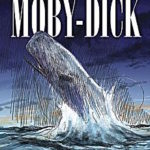
by Herman Melville
Themes: New England, whaling
Considered one of the greatest American novels, which interestingly was not popular during Melville’s life time, it recounts the epic adventures of narrator Ishmael as he sails on the whaling ship Pequod under the command of the eccentric and vengeful Captain Ahab who obsessively pursues a great white sperm whale that cost him his leg on a previous voyage. This enduring tale of good vs evil sets the mood for small ship cruises in and around New England, once the whaling capital of the world.
The End of the Tether (fiction, 1902)
by Joseph Conrad
Themes: Southeast Asia, sea captains
This novella hangs heavy in the air, like a thick fog on a damp morning. In keeping with the maritime setting of many of Conrad’s melancholy works, to help his struggling daughter, a sea captain in his twilight years is compelled to invest his last 500 pounds in a rickety old steamer and take the helm for runs through the Indonesian archipelago.
Don’t miss a post about small-ship cruising, subscribe to QuirkyCruise.com for monthly updates & special offers!
© This article is protected by copyright, no part may be reproduced by any process without written permission from the author. All Rights Reserved. QuirkyCruise.com.


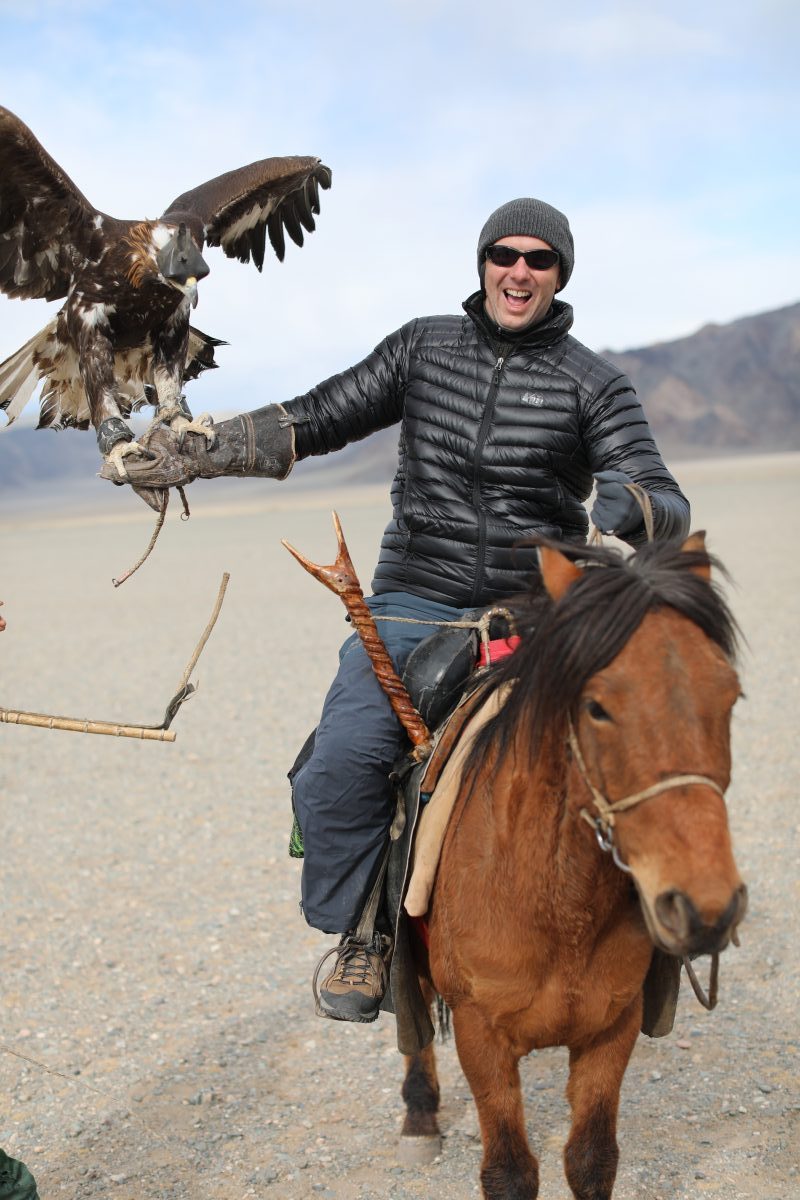

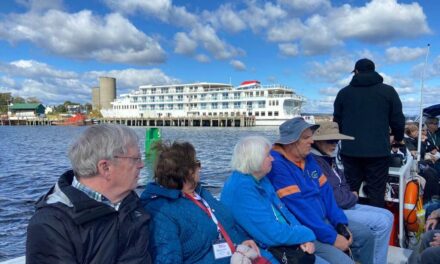
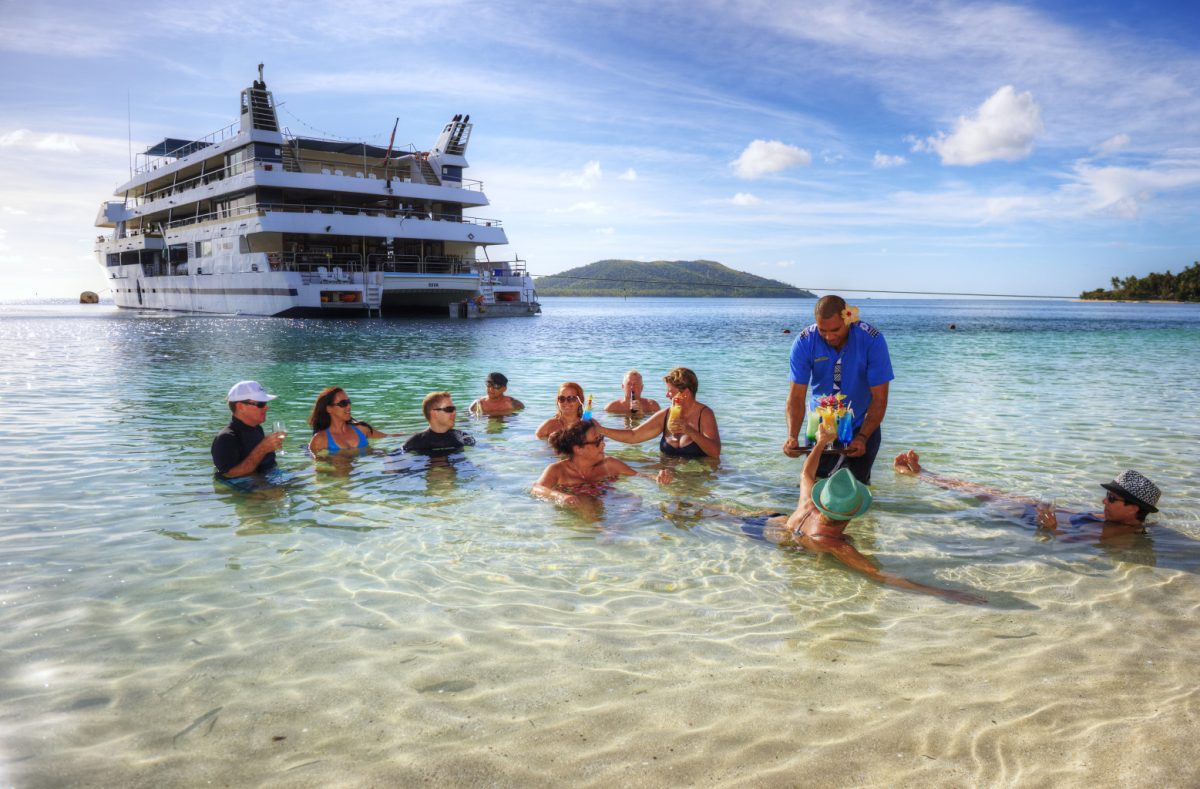
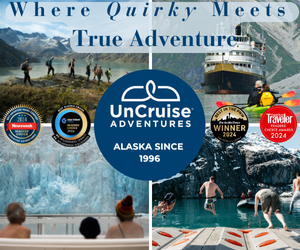
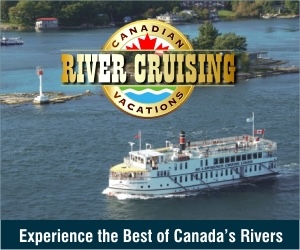

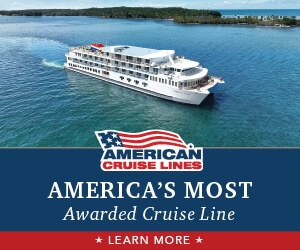

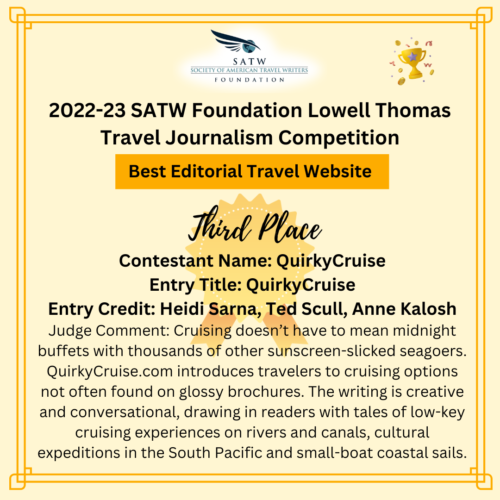


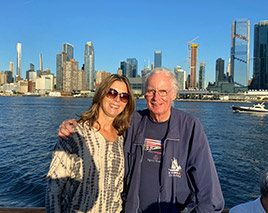 HEIDI SARNA
HEIDI SARNA
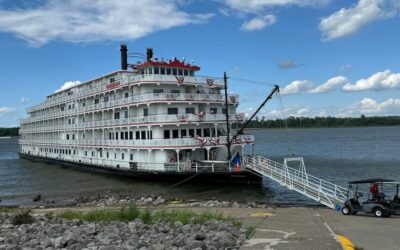
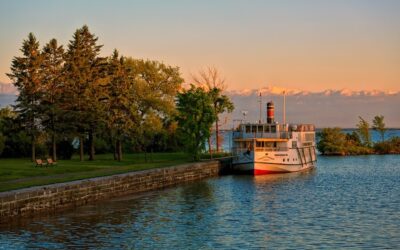

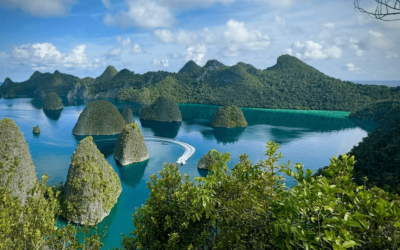

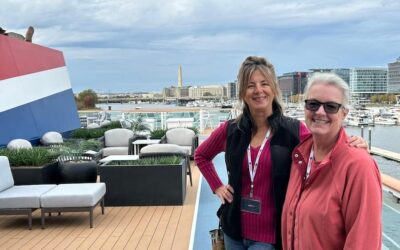
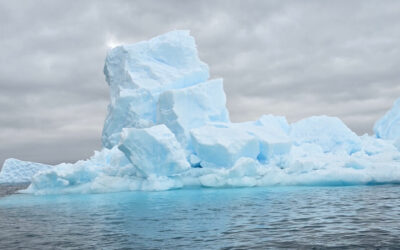
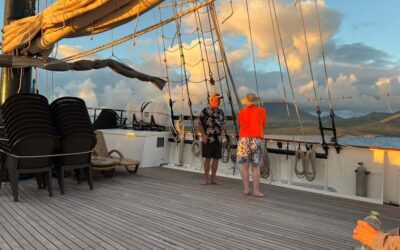
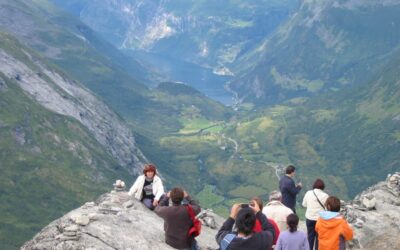



Some of these I haven’t heard of, adding them to my reading list!